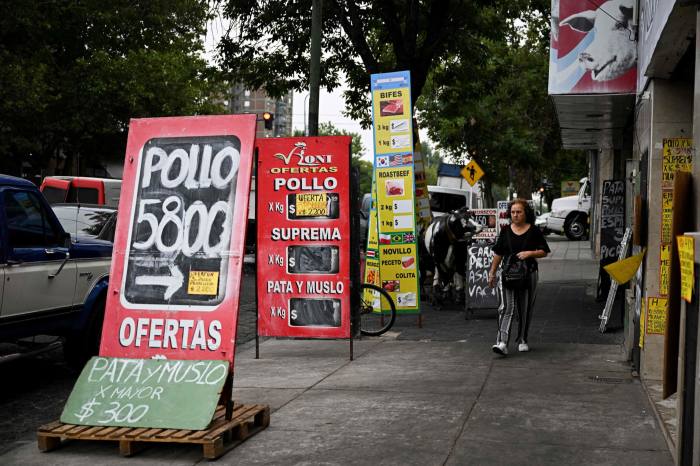
Argentina closed the year with annual inflation accelerating to 95 per cent, bringing the South American country narrowly outside the five triple-digit inflation nations globally.
Prices rose by 5.1 per cent in the month of December, increasing slightly after three consecutive months of decline and bringing the 12-month figure to 94.8 per cent, according to the government statistics agency Indec. That was the highest rate since 1991, when the country was emerging from a hyperinflation crisis.
Soaring prices have largely been attributed to a bout of central bank money-printing, as well as Russia’s war in Ukraine.
Argentina sits among the six countries that experienced the highest rates last year, but is behind Zimbabwe, Lebanon, Venezuela, Syria and Sudan, which experienced triple-digit inflation last year.
Argentina’s finance minister, Sergio Massa, attributed the modest decline in December to a price control scheme known as “Fair Prices” or Precios Justos, which has temporarily frozen the cost of over 1,700 goods until December 2023. Similar price controls introduced in 2021 failed to curb inflation. The minister added that monthly price rises could start to fall, to 3 per cent by April.
Economists widely expect inflation in Argentina to remain stubbornly high throughout 2023 as the country enters a presidential election year and are sceptical of the effectiveness of the latest government measures.
Earlier this week, the World Bank warned that bringing inflation below 90 per cent will be a complex challenge in 2023.
Consumer sentiment in Argentina has continued to deteriorate. The value of the local peso on the widely used parallel exchange rate has fallen to historic lows against the US dollar as savers fearful of a further devaluation convert their pesos into more trustworthy holdings. On Thursday the peso fell to 360 against the dollar.
Read More:Live news: Japan schedules release of contaminated Fukushima water into ocean
2023-01-13 03:46:32
